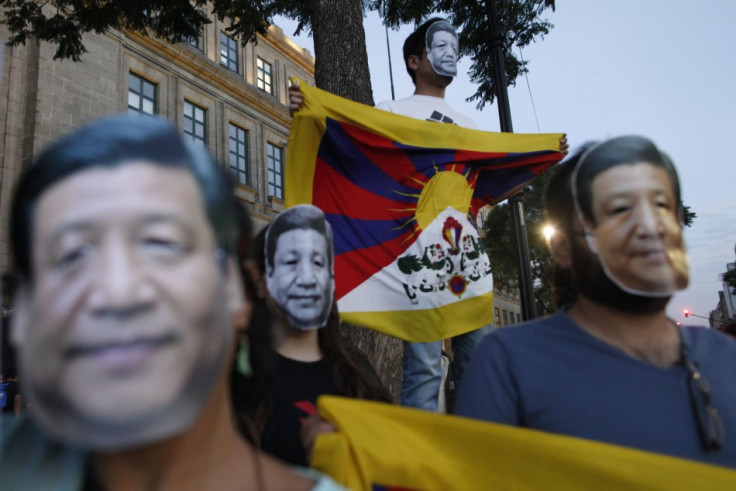Economic Cracks in China Show on Inexperienced Politicians and Corruption

For those with a more global approach beyond US domestic data there are two other major shadows to contemplate.
The first comes from China where the authorities are clearly struggling to control the domestic credit market and, whether they are successful or not, growth is bound to be hit.
The problem runs far deeper than mere economics as it arises from decades of one-party rule and 'state capitalism'.
On the surface it looks like a real estate bubble with licensed and 'shadow' banks shovelling money out to speculators, with the risk of a collapse in prices threatening the solvency of borrowers and lenders alike.
However, endemic corruption means that some borrowers (local authorities, state-owned enterprises and well-connected cronies) are more able than others to obtain loans on favourable terms while not all the proceeds are being applied to legitimate purposes.
Lending institutions, in desperation to stay in the game, are raising funds with risky instruments that circumvent and pay out much more than the official 3% rate on deposits.
Corruption
Corruption has also hindered supervision and enforcement of basic regulations such as the 75% loan to deposit ratio. Accordingly everyone is at risk: not just the speculators and imprudent lenders but also public sector organisations, legitimate businesses and ordinary families.
With wealth increasingly concentrated in the hands of the well-connected few, a bank crash would not only derail the next stage of China's economic development into greater domestic consumption but also undermine the legitimacy of the Communist Party.
Since before the new political leadership formally took office in March the authorities have been trying to squeeze the shadow banks by refusing to inject liquidity and allowing money market rates to reach unprecedented double figure.
Well-publicised campaigns against corrupt individuals and organisations have been mounted and diversification from manufacturing exports into domestic consumption trumpeted by China's President Xi Jinping and his colleagues.
Paying the Price for Inexperience
The new leaders appear willing to pay the price of much lower levels of growth: the official target is for GDP growth at an annualised rate of 7.5% and the figure for Q1 was perilously close.
The figure for Q2 may have to be massaged if the target is to be met in 2013 and it is not surprising that the authorities blinked last week. Liquidity was injected into the banking system at last and the People's Bank of China announced that those banks complying with the regulations would be supported.
It is not meant to sound patronising or even unsympathetic in describing Chinese politicians, officials and investors as inexperienced in handling challenges of such magnitude and complexity and, apart from a burst of exuberance over the turn of the year, local investors have shown what they think by taking the Shanghai Composite in the opposite direction to the US and European markets over the last 12 months.
The much more liquid Hang Seng Index has fared better but is now suffering from a global retreat of hot money.
This may have encouraged Anthony Bolton, doyen of fund managers, to throw in the towel and enjoy his retirement but even he remains a long-term China bull.
That seems fair enough as long as one is willing to face a bumpy ride while taking care to avoid companies dependent on debt.
Alastair Winter is the Chief Economist at Daniel Stewart & Co
© Copyright IBTimes 2025. All rights reserved.





















